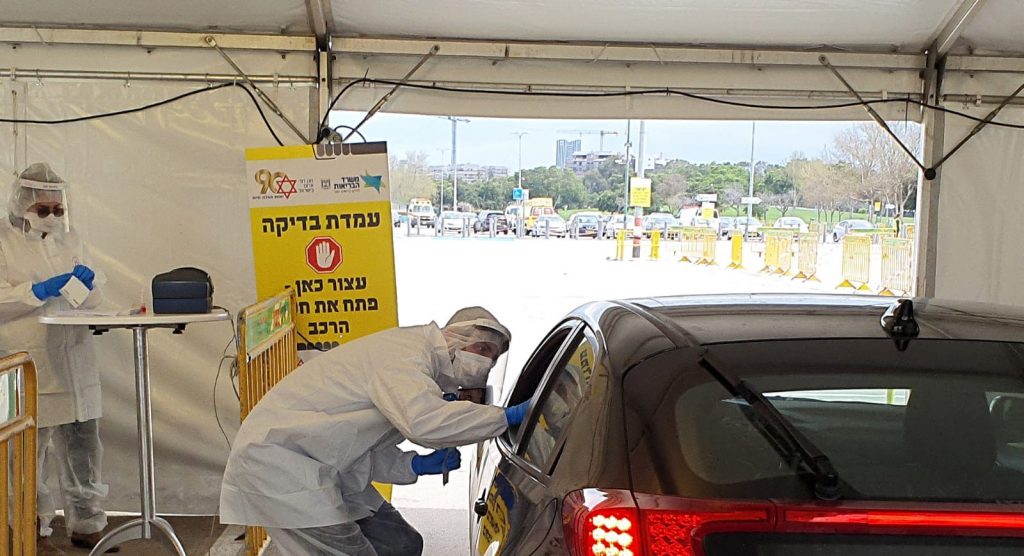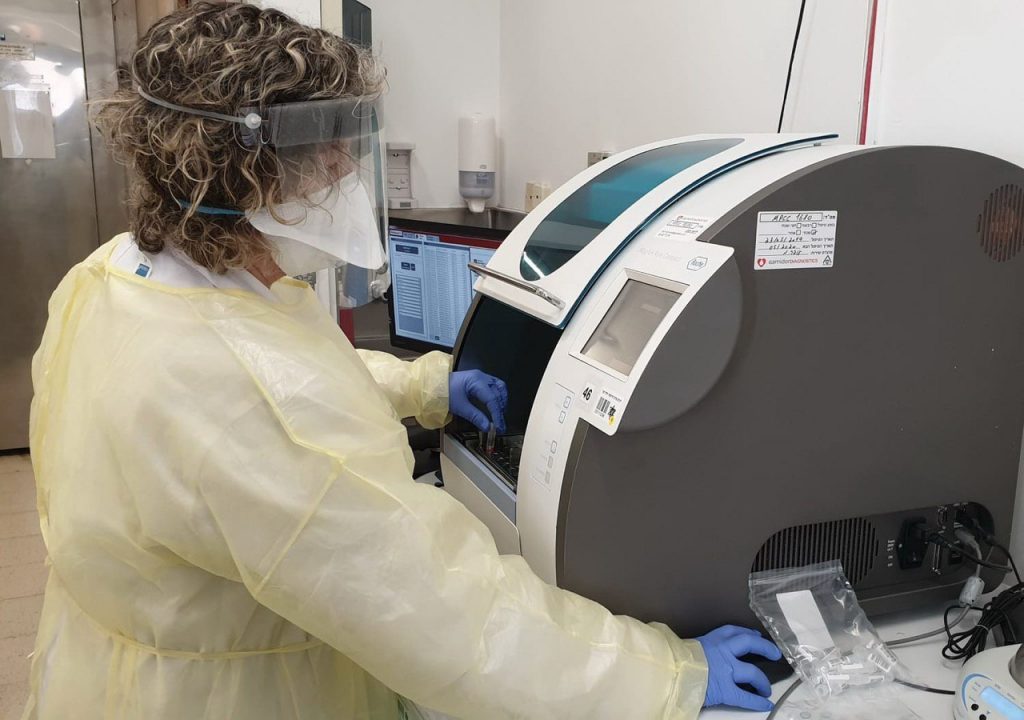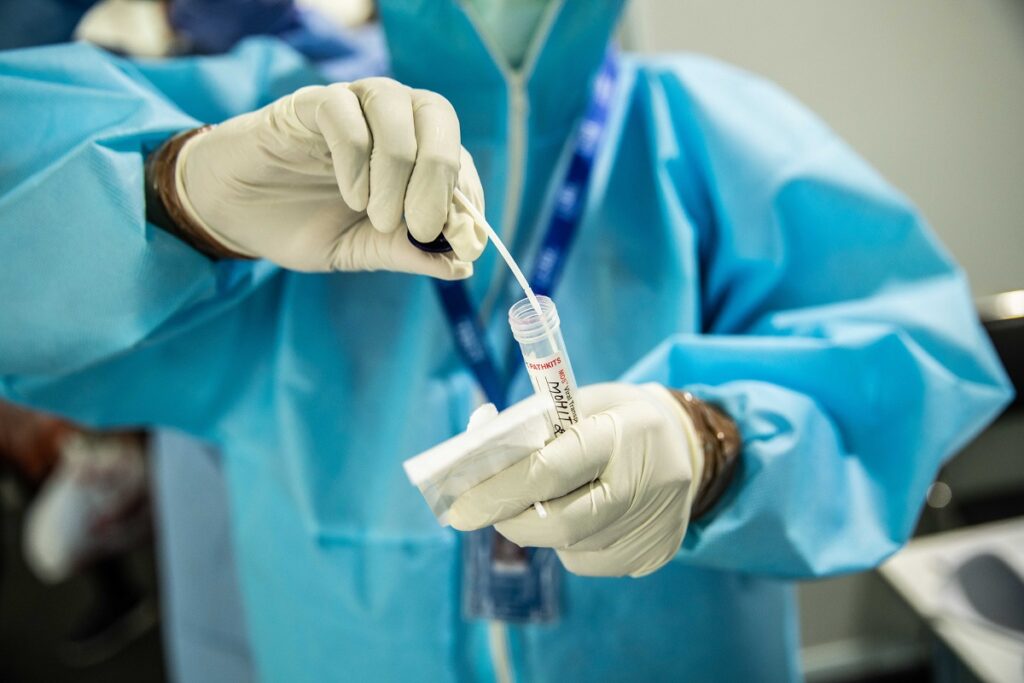Nine Israeli organizations working on solutions or technology to tackle the COVID-19 pandemic won grants worth approximately 18 million ($5.3 million) from the EU’s innovation program Horizon 2020, The Israeli Innovation Authority announced this week.
The nine organizations include universities, NGOs, and companies, that will take part in collaborative projects comprised of at least three partners from three different countries. Together, they will develop solutions that can be applied quickly to respond to the coronavirus outbreak.
The Innovation Authority said the solutions will include immediate conversion of production lines to manufacture vital medical equipment, the development of medical technologies and digital instruments, tackling the social and economic effects of the pandemic, and building databases of patients to create new models for responding to emerging health threats.
SEE ALSO: European Firms, Accelerators Head To Tel Aviv With Over $300M To Invest In Israeli Startups
The Israeli organizations will take part in eight of the 23 international projects that won grants following the urgent call for proposals under the Horizon 2020 program.
They include the University of Haifa with a project to monitor and improve the mental and physical health of adults and children with disabilities through a personalized platform, and the Hebrew University of Jerusalem which will join an interdisciplinary team with members from twelve countries to research the indirect effects of decisions taken during the pandemic.
Separately, Israel’s paramedic and emergency service Magen David Adom will take part in a project called Covinform, which will examine the response to the COVID-19 pandemic at various governmental, agency, and media levels. The project will also examine the impact of the pandemic on vulnerable groups in the population. Covinform has 17 partners and an overall budget of €5 million over 36 months.

Israeli medical devices company MDM Projects will take part in a project made up of seven partners named CleanAir, which will produce devices for air purification and disinfection to be installed in hospitals, medical centers and clinics. The company will produce a first batch of filters for the device. This project has a total budget of €2.2 million, and is expected to last 24 months.
Sanolla, a digital healthcare platform company based in Nesher, Israel, will be working with seven different European entities to develop a system for monitoring coronavirus patients and individuals with chronic heart or lung conditions. The technology will facilitate swift identification – within 10 seconds – of disease, enabling rapid isolation of patients, and preventing the entry of sick people into retirement communities and other high-risk public areas, according to the announcement.
Natali, an Israeli telemedicine company that provides emergency medical treatment at home, is also a member of this partnership. It will use a remote monitoring and management platform for patients that combines both human and professional contact and collects medical data from the patient’s home.
Sign up for our free weekly newsletter
SubscribeIsraeli company SKM Aeronautics will be part of a group of 21 partners from academia and industry to develop the know-how required for rapid conversion of production lines for multiple-use protective silicone masks with unique anti-bacterial textures and internal, single-use filters. The idea is to create a universal knowledge base that can be implemented almost immediately in an emergency by a large number of manufacturers. The total budget for this project is €6.3 million and is expected to last 24 months.
Israeli photonic and optical solutions company PhotonicSys, based in Neve Shalom, will be part of a team of seven partners to develop a small, portable and inexpensive device based on light-sensing technology to carry out rapid, low-cost sample testing. The test will be able to be conducted at the point of treatment. Participants include a research team from France responsible for the biological and clinical aspects of the development of the test, an Irish company producing the magnetic nanoparticles, as well an additional company handling regulation and approval for use from European authorities. The project was granted an overall budget of approximately €2.8 million, and is expected to last 12 months.

And finally, Siemens Israel will be part of a team to develop a software system connecting suppliers and consumers for components created via 3D printing technologies for industrial use. When the pandemic reached Israel, Siemens opened its platform to medical entities to allow them to locate global suppliers of vital equipment to deal with emergency situations. As part of the project, a number of production centers across Europe joined together to provide a comprehensive service for locating suppliers, managing orders, controlling production processes and enabling the rapid supply of medical devices, products and spare parts. In a crisis, the production lines need to be brought to full capacity in a short timeframe to supply the required equipment to health services.
The project has 21 partners, a budget of approximately €7.3 million, and is expected to last 24 months.

Dr. Ami Appelbaum, chairman of the Board of the Israel Innovation Authority and of the Israel-Europe Research and Innovation Directorate at the Israel Innovation Authority (ISERD) Steering Committee: said the program “constitutes an opportunity for companies, academics and other Israeli entities to take part in the biggest research and development platform in the world.”
“The program enables Israeli participants to compete, in collaboration with outstanding European partners, for extensive grants which support long-term R&D and test applications of proposed solutions in a variety of fields together with potential customers. I congratulate the Israeli entrants who won grants for solutions to the coronavirus crisis following the call for proposals,” he added.
SEE ALSO: Israeli Data Scientist Suggests ‘End of Coronavirus Peak’ Is Near
Dr. Hagit Schwimmer, head of the Life Sciences Department at ISERD, said: “Participation in the Horizon 2020 program with partner companies is highly competitive, requiring considerable creativity and the development of close business ties from the preliminary preparation stage forward.”
“Given the current terms of submission and the urgent demand for fast-moving solutions, we were pleased to see that so many Israeli participants were able to appreciate the significant benefits of the program and stepped up to the challenge. These efforts led to a large number of grant winners, which will encourage European entities to continue partnering with Israeli companies in future collaborations, easing Israel’s integration into the European R&D arena in the long term,” she said.
Related posts

Editors’ & Readers’ Choice: 10 Favorite NoCamels Articles

Forward Facing: What Does The Future Hold For Israeli High-Tech?

Impact Innovation: Israeli Startups That Could Shape Our Future




Facebook comments